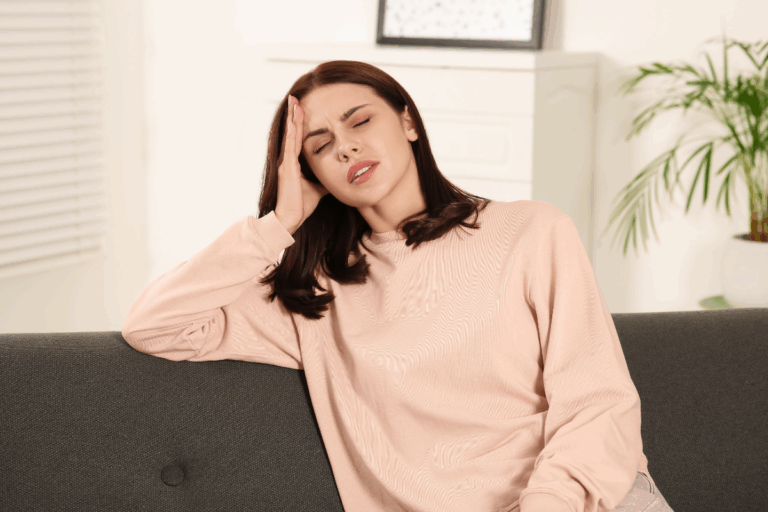Depression and Anxiety – Can I Have Both? Understanding the Complex Relationship
Maddison Henley PA-C

Life, with its myriad experiences, often mirrors a rollercoaster’s journey, complete with breathtaking ascents, sharp descents, and everything in-between. However, when these emotional peaks and valleys begin to affect our daily living, it becomes crucial to differentiate between typical emotional fluctuations and potential mental health issues such as depression and anxiety. In this conversation, we’ll explore the origins of these disorders, their contrasting characteristics, and the possibility of experiencing both concurrently.
Depression vs Anxiety: Identifying the Differences
We’ll begin by delving into the core differences between depression and anxiety, understanding that each has a significant bearing on our overall well-being and day-to-day contentment.
Depression is typically characterized by a persistent low mood in combination with other symptoms. Depression often feels like carrying a heavy, invisible load. It’s like you’re walking through life with heavy boots, making every step feel like a chore. The world can seem colorless and joyless, and you might feel a persistent sense of sadness or even emptiness. You could lose interest in activities you once enjoyed, have trouble sleeping or feel the need to sleep too much, experience changes in appetite, have difficulty concentrating, or even have thoughts about death or suicide.

In contrast, anxiety is marked by excessive worry, restlessness, nervousness, irritability, and irrational fears that hinder daily functioning. Anxiety is more like a constant state of high alert. Imagine you’re walking in a dark forest, and you’re constantly worrying about what might be lurking behind every tree. With anxiety, you’re always anticipating something bad happening, even if there’s no clear reason for worry. Physical symptoms often accompany anxiety, like a racing heart, rapid breathing, sweating, trembling, or feeling jittery. It’s as if your body’s “fight-or-flight” response is stuck in the “on” position.
While there are some similarities, it is crucial to distinguish between these two mental health conditions, as their treatments and coping strategies may differ.
Causes of Depression and Anxiety
The causes of depression and anxiety are multifaceted and can vary from person to person. They may include genetic predisposition, chemical imbalances in the brain, stressors such as job loss or relationship conflicts, or traumatic life experiences. It is essential to remember that depression and anxiety are legitimate medical conditions that need professional attention and support.

Experiencing Both Depression and Anxiety

If you suspect that you might be dealing with depression, anxiety, or both, don’t hesitate to reach out to a mental health professional. They can help assess your symptoms and develop a tailored treatment plan. This may include psychotherapy, medication management, or a combination of both.
Moreover, implementing self-care strategies and healthy lifestyle habits can complement professional treatment and boost overall mental well-being. Here are some suggestions to consider:
- Engaging in regular physical activity
- Prioritizing sleep and maintaining a consistent sleep schedule
- Connecting with supportive friends and family
- Practicing mindfulness and relaxation techniques, such as meditation or deep breathing
- Seeking out hobbies and activities that bring joy and a sense of accomplishment
Conclusion
Navigating the world of mental health can be challenging! But by understanding the differences between depression and anxiety, acknowledging their causes, and seeking appropriate help, you can overcome these conditions and live a happier, healthier life. Remember, you’re not alone in your journey, and support is just a phone call or conversation away.
Responsibly edited by AI
Other Blog Posts in
Animo Sano Psychiatry is open for patients in North Carolina, Georgia and Tennessee. If you’d like to schedule an appointment, please contact us.
Get Access to Behavioral Health Care
Let’s take your first step towards. Press the button to get started. We’ll be back to you as soon as possible.ecovery, together.




